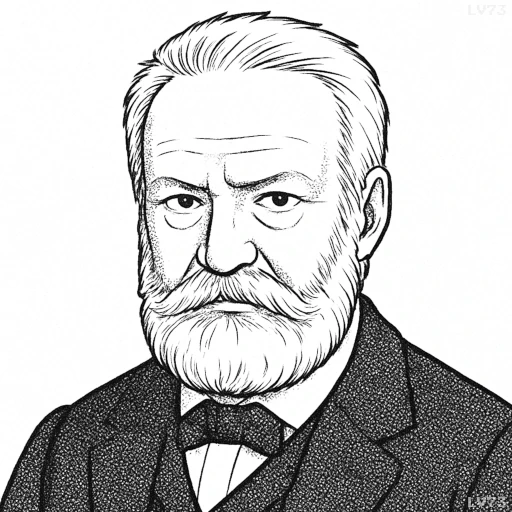“What would be ugly in a garden constitutes beauty in a mountain.”

- February 26, 1802 – May 22, 1885
- Born in France
- Author, poet, playwright
table of contents
Quote
“What would be ugly in a garden constitutes beauty in a mountain.”
Explanation
In this quote, Victor Hugo explores the relative nature of beauty, suggesting that what might be considered ugly or unappealing in one context can become beautiful or awe-inspiring in another. He uses the example of a garden and a mountain to illustrate how beauty is shaped by the environment and perspective. In a garden, beauty is often associated with order, delicate flowers, and symmetry, so an unruly or wild feature might seem out of place. However, in a mountain, where nature is untamed, rugged, and majestic, that same feature might contribute to the overall grandeur and power of the landscape. This reflects the idea that beauty is subjective and dependent on context.
Hugo’s quote speaks to the philosophical idea that our understanding of what is beautiful or ugly is often defined by conventions and expectations, which can shift based on our perspective. What might be chaotic in one environment might be seen as natural or inspiring in another, reminding us that beauty is not always about perfection or conformity but about how we appreciate the unique characteristics of each situation or setting.
In modern terms, this quote encourages us to broaden our understanding of beauty, recognizing that what may seem out of place or imperfect in one context can be extraordinary in another. It reminds us that authenticity, wildness, and imperfection can have their own grace and strength, depending on the setting in which they are viewed. This perspective can apply to both nature and human life, where diversity and difference contribute to the richness and beauty of the world.
Would you like to share your impressions or related stories about this quote in the comments section?



